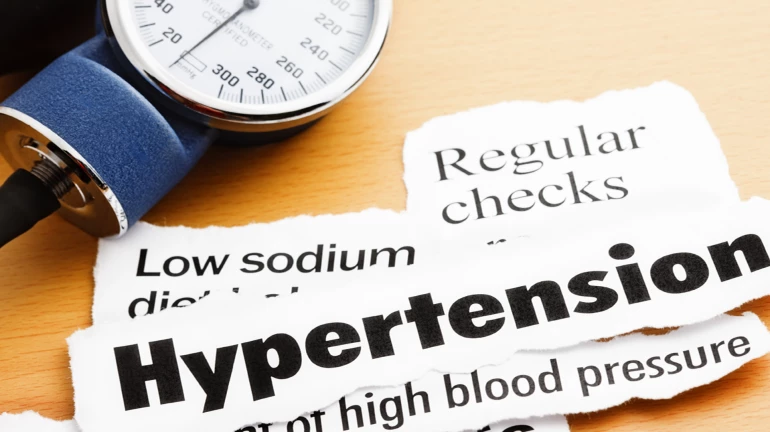
Hypertension is the most common and preventable risk factor for heart attacks, heart failure, stroke, kidney disease and blockage of leg arteries causing pain and gangrene. As per the survey in 2014 around 25 per cent of the Indian population aged above 18 years suffer from hypertension. Hypertension is now defined as systolic pressure above 130 mmHg and diastolic pressure above 80 mmHg. There are a lot of misconceptions about hypertension that we need to know, as one of the best methods to control hypertension is to educate ourselves.
Also Read: Abbott Launches 'Grow Right Campaign' To Help Parents Achieve Healthy Growth In Toddlers
Here are some commonly asked questions and their solutions by Dr. Nikesh Jain who is a consultant cardiologist at Jaslok Hospital:
Do we need to check our blood pressure even when we don’t have any symptoms? Also, should we worry about blood pressure only after the age of 40?
Hypertension is known as ‘Silent Killer’. More than 50 per cent patients have hypertension for many years without any visible symptoms and it continues to damage blood vessels of vital organs of the body. Some patients may experience symptoms like headache, palpitations, chest pain and breathlessness due to hypertension. Guidelines recommend checking blood pressure from 18 years of age as there is an increase in the prevalence of hypertension in younger age group and is expected to increase further due to lifestyle changes.
If one has a strong family history of hypertension, are there any chances that it can be hereditary and what are the ways to prevent it?
Having a strong family history of hypertension puts one at a greater risk of developing hypertension at an early age. However, healthy lifestyle changes have helped patients to delay the onset of hypertension and in some it has even prevented it.
Also Read: Union Minister Smriti Irani Inaugurates 'One Stop Centre' For Rape Victims
Is having a restricted salt intake enough? Is there any difference between sea salt or kosher and regular table salt?
Salt restriction is the most important and effective way to control one's blood pressure. Total daily salt intake should not exceed 4-6gm/day. By restricting salt means – restricting intake of Sodium (Na). Apart from table salt, we consume a lot of hidden salt (approximately 75 per cent) from processed foods like sauce, packaged foods, chips and junk food. While buying prepared or packaged foods always look for Sodium (Na) content of food and should avoid high intake sodium rich foods. Kosher salt and table salt are the same and both contain 40 per cent sodium.
How does alcohol intake affect heart and blood pressure?
Alcohol when consumed in excess causes hypertension, stroke, heart failure, irregular heartbeat, high cholesterol, cancer and accidents. Alcohol intake should be restricted to 2 standard drinks per day for men and 1 standard drink per day for women. 1 standard drink equals to 14gm of pure alcohol, which is found in – 12 ounces of regular beer, 4 ounces of wine and 1.5 ounces of distilled spirits.
Also Read: Motherhood Hospitals Wins FICCI Healthcare Excellence Award For Patient Care
If one's blood pressure is under control, can they stop their medication? Are hypertension medications supposed to be taken lifelong and does it have any side effects?
Our blood pressure is kept under control with the help of medications, so we should not stop medications and doing so can be harmful as the sudden stopping of medications can raise one's blood pressure to dangerous levels. Hypertension is a lifelong disease so medications have to be continued lifelong. Though doses of medications can be reduced or occasionally can be stopped if healthy lifestyle changes has been followed strictly. But this should be under the supervision of your doctor. Medications can cause side effects, but not everyone will experience them. The doctor will regularly monitor for side effects on follow up visit and may advise blood tests if medications are changed or doses are increased. But uncontrolled blood hypertension will cause more harm, so don’t stop/change medications without consulting your doctor.
How should one monitor their blood pressure?
It is important to regularly monitor one's blood pressure and keep it under control. Blood pressure should be checked not only during your follow up visit with your doctor, but also regularly at your home or workplace. Blood pressure levels fluctuate as per your body activity level, stress or anxiety. It is also important to check blood pressure in morning, evening and night. Blood pressure levels measured multiple times as mentioned above should be uniformly under control and wide fluctuations should be avoided. The doctor may also advise 24 hours of ambulatory BP monitoring to look for the same.
To summarise keep your blood pressure under control with low sodium intake, healthy diet – more fruits and vegetables, regular physical activity, weight loss, reduce alcohol intake, stop smoking, manage stress with yoga or meditation and regular medications and follow up with your doctor.
Also Read: Jaslok Hospital To Add 50,000 Sq. Ft. To Its Current Space As Takeover Rumours Have Been Dismissed





